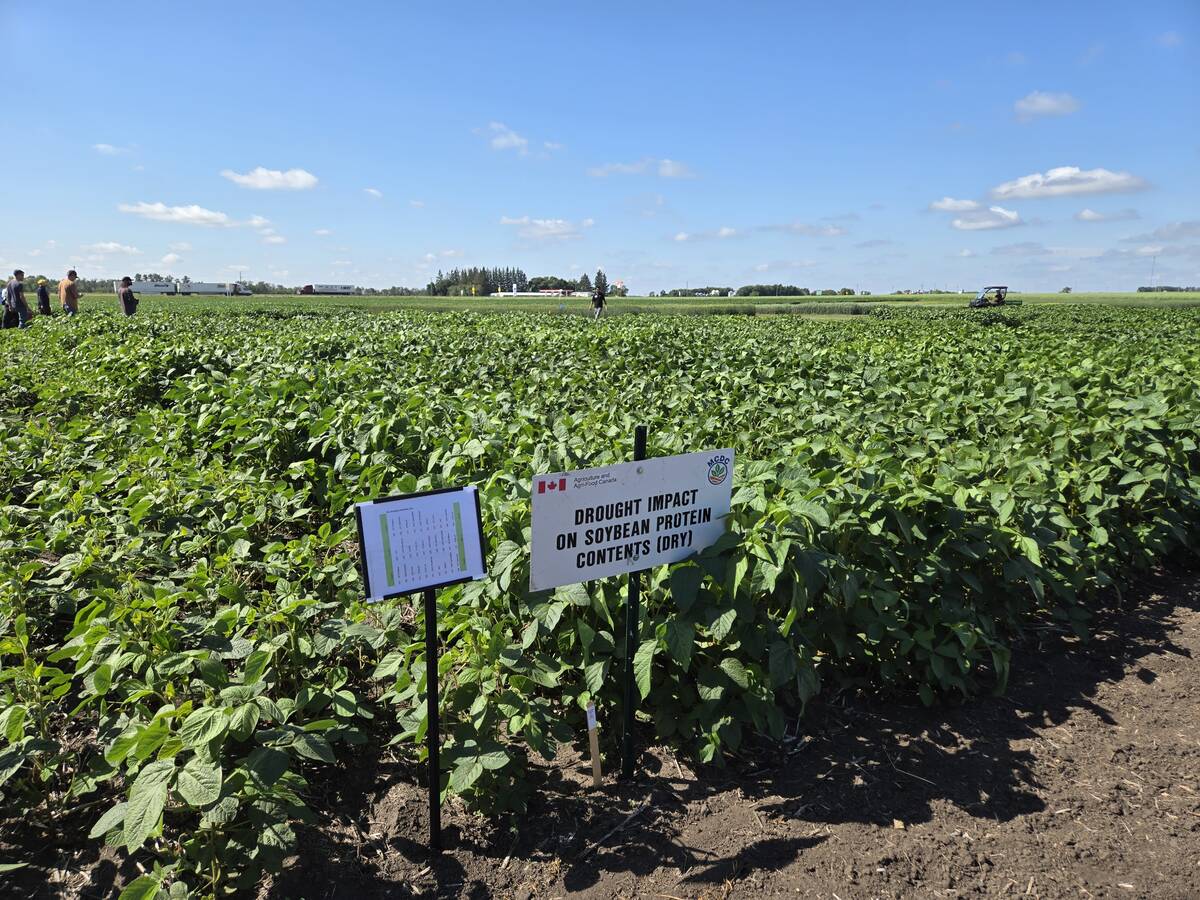A Federal Court of Appeal decision has overturned a lower court ruling and says the federal government has broad powers to direct the activities of the Canadian Wheat Board.
In a June 23 decision, the court sided with the federal government’s appeal against a 2008 lower court ruling. That earlier ruling lifted a 2006 federal government order that prevented the wheat board from publicly speaking in favour of the single desk.
Now, that gag order on the wheat board is back in effect.
CWB officials say their biggest concern is not the gag order, but the court’s affirmation of the government’s authority to control the agency’s activities.
Read Also

Carberry field day looks for agriculture solutions
Manitoba farmers explored research solutions for resilient crops, perpetual agronomic issues and new kinds of agricultural products at a field day at the Manitoba Crop Diversification Centre in Carberry on Aug. 6.
“Certainly the intention of the 1998 (CWB) Act was that control should be passed to the board of directors, and this runs contrary to that,” said CWB chair Larry Hill.
“This decision goes against what western Canadian farmers want to see.”
A 2008 survey of farmer opinion by the CWB found that 77 percent wanted the board of directors to control the CWB, while only 17 percent wanted the government in control.
Hill said the board of directors will consider its next step at its July board meeting. That could include an appeal to the Supreme Court.
Federal agriculture and CWB minister Gerry Ritz failed to return a phone call seeking his comment.
In its 23-page decision, the court relied largely on a strict interpretation of section 18 (1) of the CWB Act, which states:
“The governor in council may, by order, direct the corporation with respect to the manner in which any of the operations, powers and duties under this act shall be conducted, exercised or performed.”
The court rejected arguments put forward by the CWB that amendments to the act in 1998 establishing a producer-elected board of directors were intended to limit the government’s authority to direct the board’s activities.
It said the intent of Section 18 (1) is that in the event of a disagreement, the government should retain the ultimate power to decide.
In a unanimous decision, the three-judge panel said the act makes it clear that the government has the authority to direct the CWB on “any matter of governance.”
The ruling also negated the lower court’s ruling that the gag order violated the board’s right to freedom of expression under the Charter of Rights and Freedoms.
National Farmers Union president Stewart Wells said the board should seek leave to appeal the ruling to the Supreme Court.
He said the court’s decision violates the spirit of the 1998 amendments to the act, which was to provide farmers with more control over the CWB.
“The entire organizational structure of the board was changed and the government of the day made it clear control was being handed over to farmers,” he said.
Wells added all the recent disputes between the Conservative government and the board and its supporters boil down to the issue of who controls the marketing agency.
Kevin Bender, president of the Western Canadian Wheat Growers Association, said the organization was happy with the court ruling.
“We’re pleased that the wheat board won’t be allowed to use farmers’ money to promote its monopoly,” he said.
If the board was a voluntary marketing agency, it would be free to spend money however it wants, he said, but it shouldn’t be allowed to spend money from farmers who don’t support the monopoly.
Bender said control of the CWB wouldn’t be an issue if the agency was voluntary.














